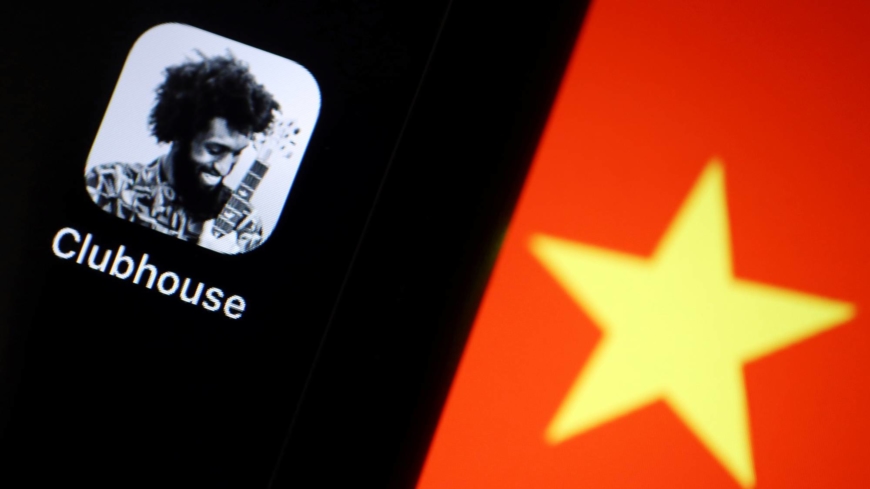[ad_1]
SHANGHAI/Beijing – Access to U.S. audio app Clubhouse was blocked in China on Monday, users and an anti-censorship watchdog said, ending a brief window that allowed thousands of mainland users to join in discussions often censored in China.
Launched in early 2020, Clubhouse’s global user numbers soared earlier this month after Tesla CEO Elon Musk and Robinhood CEO Vlad Tenev held a surprise discussion on the platform.
Masses of new users joined from mainland China, taking part in discussions on topics that included sensitive issues such as Xinjiang detention camps, Taiwan independence and Hong Kong’s national security law.
However, users of China’s Twitter-like social media app Weibo began posting that they were having issues accessing the Clubhouse app on Monday evening. Some showed screenshots of a message the app displayed when they tried to open it which said a secure connection to the server could not be made.
Anti-censorship activist website GreatFire.org said on Twitter late on Monday that the app had been blocked for users in China at around 7 p.m. Beijing time that day.
Many Western social media apps including Twitter, Facebook and YouTube are banned in China, where the local internet is tightly regulated and often censored of content that could undermine the country’s ruling Communist Party.
Clubhouse did not respond to requests for comment. The Cyberspace Administration of China, the country’s top internet regulator, did not immediately respond to a faxed request for comment.
“Clubhouse has been walled,” said one Weibo user on Monday, referring to the system China uses to regulate its internet.
“This is just too fast,” said another.
Many Weibo posts discussing the blocking of the app were deleted from the platform by Tuesday morning.
The Clubhouse app is only available on iOS devices and is unavailable in the local Apple app store in China, but mainland Chinese users had been able to access the app by modifying the location of their app store.
As first reports of the internet disruptions began on Monday, nearly 3,000 users opened a room in Clubhouse to discuss whether it had been blocked by Chinese censors, with some expressing concerns that authorities could be monitoring discussions.
Some users urged others not to panic.
“Let bullets fly for a while. Let’s monitor for a few days first, don’t panic yet,” one user said.
Kaiser Kuo, host of the China-focused Sinica Podcast, live-tweeted on Sunday some of the conversations he was hearing in a room discussing the Uighur situation.
He noted how Han Chinese — the dominant ethnic group in China — and people from the persecuted Uighur community were interacting in the space.
A reporter heard a speaker identifying as mainland Chinese express opposition to the term “concentration camps” — although acknowledging the existence of facilities.
Many of those listening in were fascinated by the candor of the online discussions.
“I’m in a Taiwanese-run room in Clubhouse where 4,000 Mandarin speakers — including Uyghurs and Han Chinese IN CHINA, and outside are talking about… everything,” Berlin-based journalist Melissa Chan tweeted.
“From surveillance, to friends who’ve left re-educations camps, to normal stuff.”
In a time of both misinformation and too much information, quality journalism is more crucial than ever.
By subscribing, you can help us get the story right.
[ad_2]
Source link







